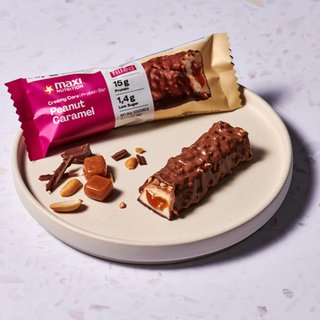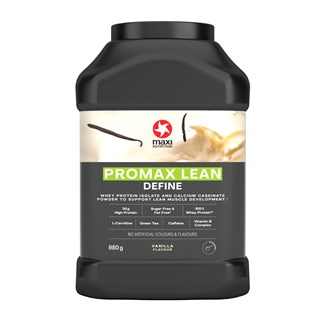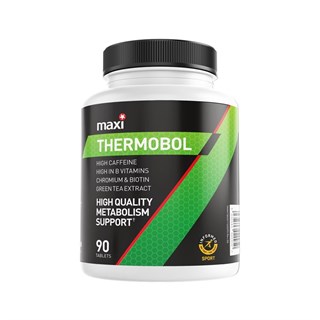Latest diet trends for 2023
Everyone is on a diet of some kind; eating more of this, and less of that! Your diet should be personalised to you, your goals and your lifestyle. But with so many contradicting opinions on nutrition, what is the best diet for you? Let our resident nutritionist Gareth Nicholas, talk you through three of the most popular trending diets of 2023.
The Mediterranean Diet
Labelled as the healthiest diet in the world for many years and scientifically proven, the Mediterranean diet is based on eating plenty of plant foods, fruits, vegetables, grains, legumes, fish, poultry and lean meats. It’s about eating natural, cutting out processed foods, free sugar and limiting some of the more questionable food sources, such as dairy and red meat.
Benefits of the Mediterranean Diet
The Mediterranean Diet is not considered a diet but a lifestyle choice. Following this path is about selecting fresh, wholesome, full of natural goodness foods. You can even have a sociable glass of red wine – it’s a fruit after all. Despite the lack of real guidance, this diet is flexible and promotes the inclusion of many nutrient-dense foods, along with plenty of gut-supporting fibre.
Concerns of the Mediterranean Diet
The lack of clear guidance doesn’t suit everyone. There’s no definitive guidance on the amount of red and processed meats, dairy or wine. The whole premise of the diet is to eat healthy foods, but how much? When and how realistic is this diet in the modern, fast-paced, inflated costs of the world today?
The Nutritionist’s opinion
Calorie counting, fat loss, healthy eating, hormone balance etc etc, all add lots of noise to what should be straightforward. Humans have been eating for a long time, surely by now, we must know exactly the best foods and drinks we should consume? In part, sure, eating natural goodness, limiting processed foods, promoting fibre, cutting out free sugar, and eating less saturated fat, all sound like a perfect diet for healthy living. Essentially, being more focused on the nutrient content of your diet rather than worrying about every calorie, but for many of us, life just isn’t that simple. We’ve been brainwashed into believing that natural is bland, tasteless and requires you to be a chef to make delicious meals.

There can be no doubt, that if you follow a Mediterranean diet (and lifestyle) you will lower the risk of several diseases, conditions and improve your health and well-being. But will that get you on the front cover of a magazine or thousands of likes and follows on social media? What I mean, is that the Mediterranean diet is perfect from a health perspective, but may not be the ideal diet for someone that wants to increase muscle mass, tone up or reduce that unwanted body fat. Here is Heart UK's view on the Mediterranean Diet.
The 5:2 Diet
This diet is based on the principle known as ‘intermittent fasting’ and is usually prescribed for weight loss. Its popularity may be because, for 5 days of the week, you don’t need to be restrictive about your calorie consumption, although you should still follow a healthy diet and lifestyle. For the remaining 2 days there is a calorie restriction, eating a maximum of 750 calories per day, but no restriction on the type of food you obtain these calories from. Things have moved on a bit from the 5:2 and more in favour is TRF or Time Restricted Feeding. Still on the same premise as intermittent fasting but now you eat in a much smaller time window and have a longer fasting period, similar to what our long-distant ancestors would have done.
Benefits of the 5:2 Diet / Intermittent Fasting
Having just two days of restricted eating sounds appealing, and means sticking to the plan is more achievable than one based on seven days of eating a healthy balanced diet. The calorie-restricted days force you into an unthinking calorie deficit. It's not about don’t eat that, eat more of this. This is healthy, but that won’t help. It’s simply, don’t eat. No thinking, no fuss. Any level of intermittent fasting provides the body with a period of metabolic rest and a chance for cells, hormones and processes to recover and recharge, along with allowing other rest-dependent processes to occur, such as the gastro clean-up crew. Microbes that get to work when the day shift has finished.
Concerns of the 5:2 Diet Intermittent Fasting
On the two calorie-restricted days, you may feel low on energy, irritable, dizzy and have a lack of concentration which may affect daily tasks. Some of your weight loss is likely to be muscle wastage, which can harm your metabolism. Are these diets changing your relationship with food for the better? Probably not, and weight regain often occurs.
The Nutritionist’s opinion
Whilst I can see plenty of benefits, particularly when you need to get started; break the downward spiral of unhealthy eating and weight gain, but this isn’t or shouldn’t be a diet for life. Sustainability and avoiding weight regain is always questioned when following some form of a fasted diet, especially on the more extreme versions. TRF may well be the answer but living with a family, and work or social commitments, can make it difficult to follow, all of the time. Perhaps some degree of flexibility is required. For more on intermittent fasting check out Bupa’s article.
Healthy Snacking
A big part or downfall, of anyone’s diet is when hunger strikes. Those periods are in between your main meals. That time when those chocolate and sugary snacks and drinks seem to be whispering in your ear. An area of increased popularity is swapping those unhealthy confectionary-style snacks for a protein bar. Boosting your daily protein needs with a delicious snack without unwanted sugar, something like MaxiNutrition Creamy Core Bars. The treat without the cheat! Or maybe take a bite out of our tasty MaxiNutrition Nut Bars, packed with whole nuts and rich in protein.
The Whole30 diet
Whole30 is an elimination diet, the premise is that you eliminate certain foods and drinks with scientific evidence to cause cravings, blood sugar or hormone imbalances, digestion problems and immunity or inflammation complications, for 30 days. Over the subsequent 10 days, you reintroduce some of those foods and monitor any change. It’s a personalised experiment to see how your body reacts to certain foods. Whole30 is not marketed as a weight loss plan, although it's likely that you will see some of that unwanted fat disappear as your diet is restricted in consuming the typical offenders that cause weight gain. This diet aims to be a sort of reset, a chance to take back control of your nutrition.
Benefits of the Whole30 diet
Whole30 promotes consuming natural, nutrient-dense foods that we know our diet should contain in abundance. Foods such as vegetables, fruits, seafood, unprocessed meats, nuts and seeds, eggs, olive and coconut oil and black coffee. For 30 days you are told to avoid foods such as dairy, bread, pasta, legumes, added sugar, fried food, additives and alcohol. Many health and well-being benefits will occur along with some fat loss, but primarily this diet plan is based on being a reset, a chance to start over.
Concerns of the Whole30 Diet
For many of us, this diet is strict. There are lots of things to consider and be aware of. Of course, putting the hard work in is likely to be rewarding but there seems like a high chance of failure because of all the exclusions. Many exclusion diets don’t work in the long term and we just end up reverting to our old habits. Alternatively, successful diets often talk more about being inclusive rather than exclusive.
The Nutritionist’s opinion
This diet has many merits. I like the idea of getting back to our roots, understanding and questioning more about what we are consuming, but I have to question how this diet works in the real world, i.e. with family, and social engagements. Would this diet potentially ruin our fun and love for food? I think this diet is an excellent approach to help the many who suffer from some form of intolerance or are committed to understanding more about the effect of certain foods on the body. Maybe it's worth just trying it for 30 days and going from there. The Whole30 plans to reintroduce a food group every few days following the initial 30 days and then see how you feel. This is one for the most committed, but if it's change you want, then a little hard work shouldn’t put you off. For more information on the Whole30 check out www.whole30.com
Summary & Conclusion
There are so many diets, all claiming that they’re the best approach to a healthy life. I’m sure many of them will offer something to someone, but going on ‘a diet’ in the first place is an acknowledgement that a change is required from the food you consume. When it comes to the best diet plan for you, there are many factors. Consider whether it’s sustainable and how easy it is to implement into your lifestyle, as these will determine whether it’s a success or if you’ll give up after a few weeks.
MaxiNutrition believes that long-term weight loss comes down to following a healthy calorie-controlled, portion-controlled diet that is suitable for your body size and activity level. Your daily calories should be based around starchy carbohydrates, lean sources of protein, good fats and plenty of fruit and vegetables providing your body with all the nutrients to get the most from life. That said, be the master of your own destiny, why not experiment?
These three diets along with many others always promote healthy eating, consuming plenty of vegetables, fruits and a variety of carbohydrates, protein and fats. There’s no magic pill and you will be eating for years to come, so be happy with your decision, it’s your plan and your body. Spend some time on getting your nutrition right. Your body will thank you for it.





















